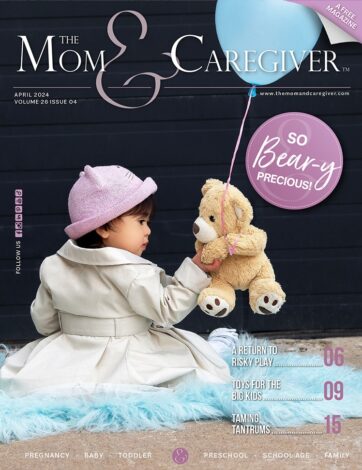Building Strong Brains
Did you know that much of who your little person is and will become stems from their brain? In fact, who you are today and what you do – your skills, how you interact in relationships, your emotional reactions, and how you experience and perceive things in your environment – stems from your brain. Your brain is a product of each and every experience you’ve had since you were born. That’s right, since birth your brain has been shaped by your experiences to become what it is today.
The brain develops from the bottom up. The lower brain, which is responsible for keeping us alive, is the first to develop. It handles breathing, digestion, heartbeat, and safety (running away from danger, fight for our life, or freeze).
The upper brain develops last. It’s responsible for our higher functions – language, problem solving, social skills, compassion, emotional regulation, creativity, etc. At birth, an infant’s brain has over 200 billion brain cells but few connections. Connections are created by experiences. Every experience with you, their caregiver, creates a new connection in your child’s brain!
Because your baby’s upper brain has very few connections, their lower brain is in the driver’s seat. Have you stopped to think about why we instinctually pick up, rock, and sooth a crying baby? We know that babies can’t regulate themselves because it’s an upper brain function, which has not yet been developed. In fact, this part of the brain isn’t fully developed until well into our 20s! Every time you soothe your baby, synaptic connections fire in your baby’s brain and start wiring-up the upper areas of the brain responsible for regulation. Every time you help your baby with their big feelings, that connection fires again. The more times it fires, the stronger the connection becomes. The stronger the connection, the more likely your child will develop and use that skill.
Who do you want your child to become? What skills do you want them to develop? Do you want them to be a considerate friend? To be aware of and regulate their feelings? To manage stress and challenges in the world?
Consider how much time you spend providing experiences to help create and strengthen connections in these areas in your child’s brain. Just like learning to regulate requires your help by soothing their big feels (and yes, this includes tantrums, whining, crying, arguing, etc.), how your child learns to handle disappointment, respond to a friend’s distress, show respect to others, and learn to read and write is highly dependent on you modeling and providing those experiences.
So, take a moment, think about who you want your child to become, and then take the time to provide those experiences and start wiring a strong and healthy brain!
Rebecca Cuthbert, M.Ed Counseling Psychology, RP
Vanier Children’s Services














